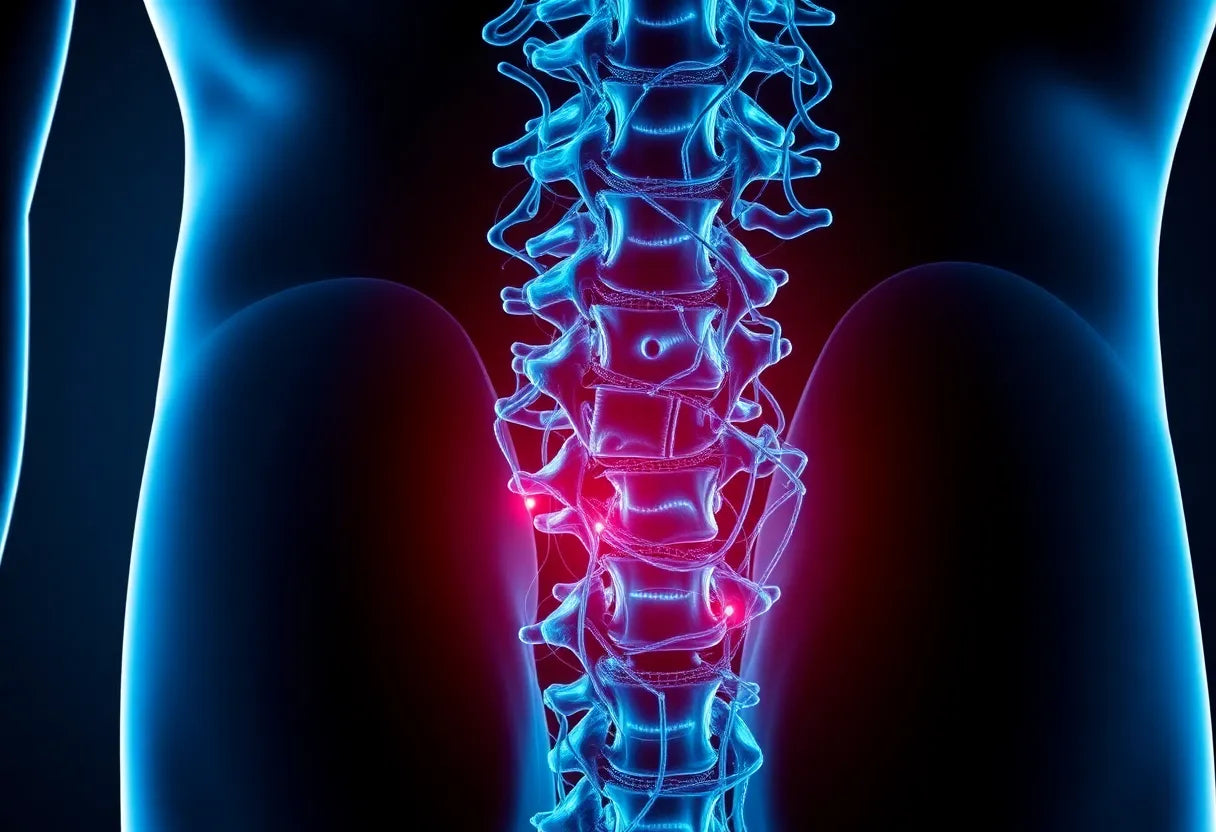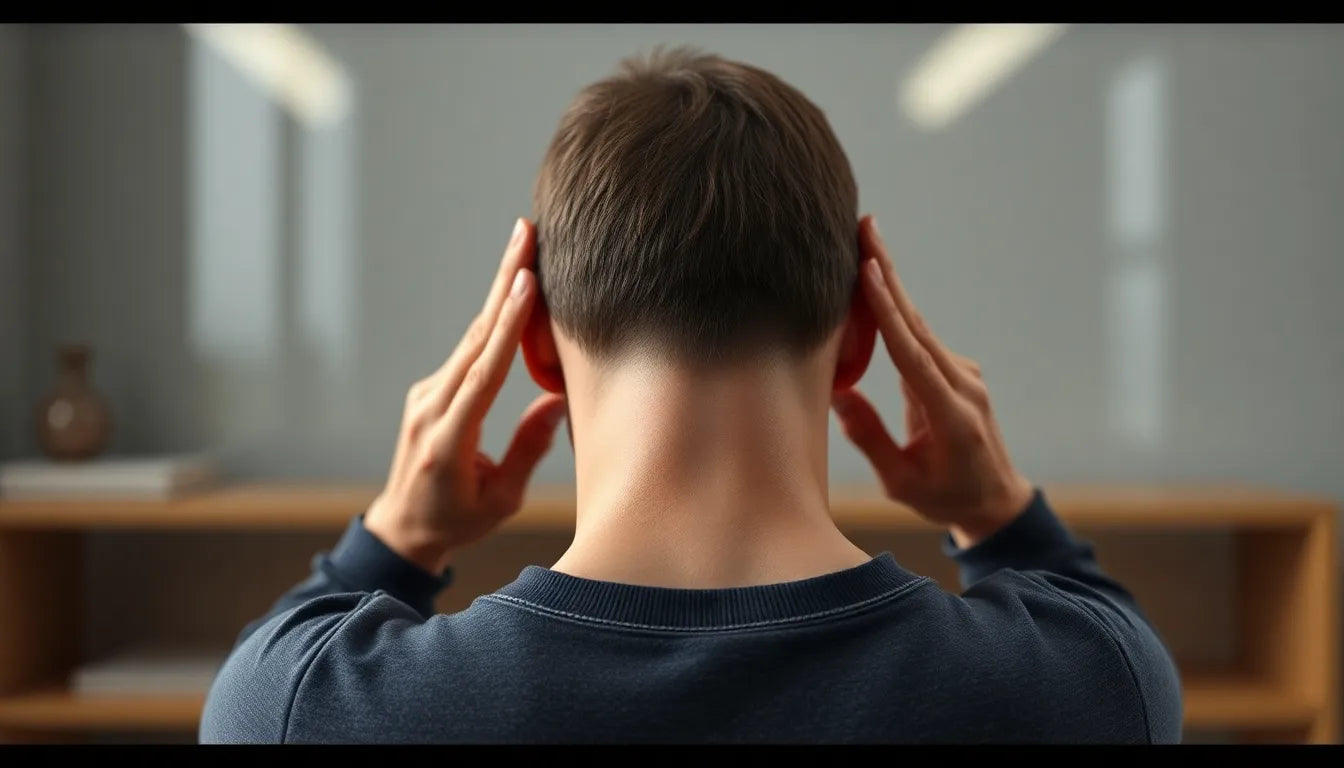A herniated disc is a common condition that affects many adults, often resulting from the natural aging process or an unexpected injury. This spinal issue can be a source of discomfort and concern, leading many to wonder: is a herniated disc a hidden danger to your health?
understanding herniated discs
To address this question, it's crucial to first understand what a herniated disc is. The human spine is composed of a series of vertebrae cushioned by discs. These discs have a tough outer layer and a soft, gel-like center. A herniated disc occurs when this inner core pushes through a tear in the outer layer. This condition is sometimes referred to as a slipped or ruptured disc.
Herniated discs are often caused by age-related wear and tear known as disc degeneration. As we age, our spinal discs lose some of their water content, making them less flexible and more prone to tearing or rupturing with even a minor strain or twist. Other common causes include trauma from accidents or injuries, as well as lifting heavy objects improperly.
exploring the potential dangers
The purpose of this post is to explore the potential dangers associated with a herniated disc. While many cases are not life-threatening, the condition can lead to significant health issues if left untreated. For instance, a herniated disc can compress nearby spinal nerves, leading to symptoms like chronic pain, numbness, or tingling in the limbs. In severe cases, it can even cause muscle weakness and mobility issues.
Understanding the symptoms and knowing when they signal a medical emergency is crucial. This post will delve into these aspects, providing insights into the seriousness of a herniated disc and when it requires immediate medical attention.
potential dangers of a herniated disc
A herniated disc can pose significant risks, particularly when it compresses spinal nerves or the spinal cord. This compression can lead to a range of severe symptoms, which, if ignored, may escalate into more serious health issues. One of the most common manifestations is chronic pain, which can vary from a dull ache to sharp, debilitating discomfort. This pain often radiates from the back to the arms or legs, depending on the location of the herniated disc.
Beyond pain, nerve damage is a critical concern. As the disc material presses on spinal nerves, it can cause numbness or tingling sensations, typically in the limbs. These symptoms are not only uncomfortable but also indicative of nerve irritation or damage. In some cases, individuals may experience muscle weakness, which can significantly impact mobility and daily activities. This weakness is a result of the nerves' inability to effectively communicate with the muscles they control.
serious complications requiring immediate attention
While many herniated discs can be managed conservatively, there are situations where the condition becomes a medical emergency. One such scenario is the loss of bladder or bowel control, which signals severe nerve compression. This symptom requires immediate medical attention, as it can lead to permanent nerve damage if left untreated. According to Dr. David Wu, neglecting these signs can result in irreversible conditions such as chronic pain, paralysis, or incontinence.
Another rare but serious complication is cauda equina syndrome, where the herniated disc compresses the nerve roots at the lower end of the spinal cord. This condition can lead to severe neurological deficits, including paralysis, if not treated promptly. Thus, recognizing these red flag symptoms is crucial for preventing long-term damage.
prognosis and treatment options
Fortunately, most herniated discs are not life-threatening and can often be resolved with conservative management. This includes rest, physical therapy, and the use of ergonomic aids to alleviate pressure on the spine. Dr. Todd Lanman emphasizes the importance of timely intervention to prevent disability and lasting consequences. Early treatment can help manage symptoms effectively and improve the quality of life for those affected.

Lumbar support belt
Adjustable belt helps relieve and stabilize lower back pain and herniated discs.
In cases where conservative measures are insufficient, medical interventions such as injections or surgery may be necessary. However, these are typically reserved for severe cases that do not respond to initial treatments. The key to a positive prognosis lies in early detection and appropriate management.
summary of symptoms and recommended actions
| Symptom | Action |
|---|---|
| Pain | Monitor and manage with conservative treatment |
| Numbness/Weakness | Consult a healthcare provider |
| Loss of bladder/bowel control | Seek immediate medical attention |
Understanding the potential dangers and symptoms of a herniated disc is essential for managing the condition effectively. While many cases resolve without invasive treatment, recognizing when symptoms indicate a more serious issue can prevent severe complications. By staying informed and proactive, individuals can better navigate the challenges posed by this common spinal condition.
prevention and management of herniated discs
Preventing a herniated disc begins with understanding the importance of maintaining spinal health through lifestyle choices. Simple strategies such as regular exercise, proper lifting techniques, and maintaining a healthy weight can significantly reduce the risk of disc herniation. Exercises that strengthen the core muscles, like yoga or pilates, can provide vital support to the spine.

Men's Posture Shirt™ - Black
Patented shirt activates muscles, relieves pain, and improves posture awareness.
Posture also plays a critical role in spinal health. Ensuring ergonomic workspaces and using supportive furniture can help prevent undue stress on the spine. Anodyne offers a range of ergonomic products designed to support spinal health, which can be beneficial as part of a conservative management regimen for those dealing with mild cases of herniated discs.
For those already experiencing symptoms, self-care measures are essential. Rest and physical therapy are often recommended to alleviate pain and reduce inflammation. Heat and ice therapy can also provide temporary relief. In some cases, over-the-counter pain relievers may be advised to manage discomfort.
real-life impact: testimonials and case studies
Many individuals have found relief and improved quality of life through the use of ergonomic aids. For instance, a testimonial from a user of Anodyne’s ergonomic chair highlights significant pain reduction and increased comfort during daily activities. Another case study details how a combination of physical therapy and ergonomic support led to improved mobility and reduced reliance on pain medication.
These real-life examples underscore the potential benefits of incorporating ergonomic solutions into everyday life, particularly for those managing mild symptoms of a herniated disc.
frequently asked questions
Can a herniated disc heal on its own?
Many herniated discs can heal over time with conservative treatment. This often includes rest, physical therapy, and ergonomic adjustments. Monitoring symptoms is crucial to ensure they do not worsen.
What are the red flag symptoms of a herniated disc?
Severe symptoms such as sudden loss of bladder or bowel control, or rapid onset of weakness or numbness, require immediate medical attention. These can indicate significant nerve compression and potential for serious complications.
How long does recovery from a herniated disc take?
Recovery time can vary widely. Mild cases may improve within a few weeks, while more severe cases might require several months of treatment or even surgical intervention for full recovery.
Are there long-term effects of a herniated disc?
Without appropriate treatment, a herniated disc can lead to chronic pain, nerve damage, and reduced mobility. Early intervention is key to minimizing these risks and ensuring a better outcome.
conclusion
Understanding when a herniated disc poses a danger to your health is critical. While many cases resolve with conservative management, recognizing severe symptoms and seeking timely medical advice can prevent serious complications. By staying informed and proactive, you can effectively manage your spinal health and reduce the risk of long-term issues.
Källor
- Larkin Health. "Herniated Disc Treatment and Services."
- Harvard Health Publishing. "Herniated Disk."
- Rohrs, M.D. "The Myths and Facts About Herniated Discs."
- Mayo Clinic. "Herniated Disk: Symptoms and Causes."
- Cleveland Clinic. "Herniated Disk."
- Stanford Health Care. "Herniated Disc Risks."
- Hospital for Special Surgery. "Slipped Disc."
- Alberta Health Services. "Herniated Disc."
- Dr. Fanaee. "5 Risk Factors That Can Lead to a Herniated Disc."


















